| Lao Cai : Attracting investment in the field of deep processing of key agricultural products Son La: Promoting the development of agricultural processing industry |
Need to change mindset
Vietnam has many advantages and potentials to develop agricultural, forestry and fishery production. The annual output of agricultural products and foodstuffs not only meets domestic consumption needs but also serves the processing industry and exports to many countries around the world .
If in 1990, Vietnam's agricultural, forestry and fishery exports were only about 20 million USD, now they have exceeded 53 billion USD/year. In the first 8 months of 2024, Vietnam's agricultural, forestry and fishery exports reached 40.08 billion USD, an increase of 18.6% over the same period last year. Export items in the group almost all increased compared to the same period, of which agricultural products increased the most (24%), reaching 21.32 billion USD. Many agricultural products of Vietnam are forecast to be exported well from now until the end of the year when the markets of trading partners are very favorable.
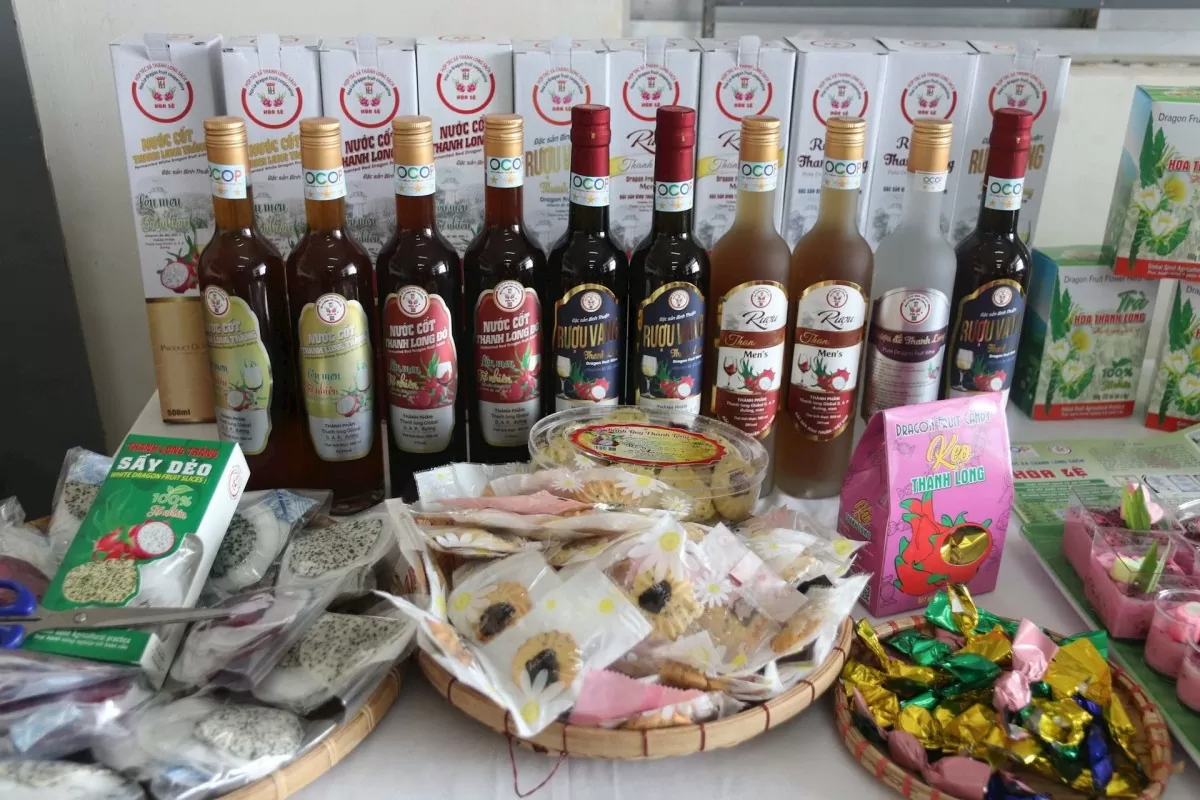 |
| Many products are processed from dragon fruit. Photo: Phan Lien |
With the current growth momentum, the agricultural sector promises to achieve the export turnover target of 55 billion USD and GDP growth of 3.5% in 2024.
Although positive results have been achieved, in-depth analysis shows that research, application of science and technology, innovation, and training of human resources in agriculture are still limited.
In fact, 70-85% of Vietnam's agricultural products are exported in raw form or with low processing content. The situation of good harvest but low price is still common, production is fragmented, the quality of agricultural products is not uniform, processing technology is backward, not synchronized, designs are not attractive, production costs are high, leading to poor competition and price pressure in the international market.
This, on the one hand, does not increase the value of agricultural products, and there is a risk of economic losses due to the large amount of damaged fruits and vegetables after harvest and when transported to the place of consumption. On the other hand, exported agricultural products and food face many difficulties and challenges from the increasingly high quality standards or requirements on the origin of goods in import markets; protectionism tends to increase in many markets; or the trend of sustainable development, carbon emission reduction and environmental protection in Vietnam's main export markets.
In the context of Vietnam's deep integration into the world economy, the development of the Fourth Industrial Revolution is having a strong impact on many areas of the economy, especially in the agricultural sector. This requires a change in thinking in agricultural development, that is, shifting from agricultural production to agricultural economy; developing effective agriculture based on high technology; increasing economic value per area of land used.
Businesses need to be energized
The application of deep post-harvest technology is considered the key to reducing logistics costs, opening up and accessing many markets around the world, and increasing product value.
Currently, many localities and enterprises have actively participated in developing deep-processed products. For example, in Tien Giang province, there are currently over 500 enterprises specializing in milling and processing rice for consumption and export. To meet the increasing demand, enterprises have installed modern technology systems such as silos to store and preserve rice; automated production lines, focused on investing in means of transporting rice from enterprises to partners, and built warehouses to store tens of thousands of tons for export.
For vegetables, tubers, and fruits, many businesses have invested in frozen vegetable, tubers, and fruit processing factories using the entire IQF processing program. After freezing, the products still retain their natural shape, flavor, and food safety, and are favored by domestic and foreign markets.
Even from the same type of coffee, some businesses have developed deeply processed products according to new tastes and consumption trends, such as Meet more fruit coffee which has been processed into instant coffee with mint, taro, coconut, green bean flavors... The product has been present in the markets of Australia, UK, Japan, India, Russia, USA, Korea... This is a new direction, contributing to increasing the value of this potential industry in Vietnam.
Or in the dragon fruit growing area of Binh Thuan, in addition to fresh fruit, there are also dried dragon fruit and soft-dried dragon fruit products. Processing not only helps increase the value of the product but also prolongs the preservation time, which helps businesses access the global supply chain more easily.
Despite such advantages, the number of enterprises investing in the agricultural sector is still low, accounting for about 1.3% of the total number of enterprises, most of which are small and medium-sized enterprises. Due to their small size, most enterprises do not have enough resources to invest in purchasing testing and inspection equipment, advanced processing and preservation machinery and equipment. Many enterprises and cooperatives have not had access to highly skilled experts to support and advise on developing business ideas and perfecting products, etc.
Based on the local reality, Binh Thuan province will support businesses and production establishments trading in the province's advantageous products to improve production capacity, increase competitive advantages, and meet international standards towards the goal of exporting OCOP products made from dragon fruit that have been recognized with 3-4 stars. Support the construction of "Proud of Vietnamese Products" Point of Sale for businesses to promote consumption and OCOP products made from dragon fruit at tourist service points, where tourists often come to visit, relax and people in Phan Thiet city where there are many famous landscapes and historical relics.
At the same time, coordinate the implementation of support policies to attract investment in agricultural processing factories; continue to encourage and support businesses to invest in technology and equipment to process high-quality products, ensuring food safety to meet market requirements, contributing to reducing pressure on fresh dragon fruit consumption.
Sharing at the workshop "Market trends and opportunities for exporting Vietnamese agricultural products and processed foods to international distribution systems", which took place not long ago, Deputy Minister of Industry and Trade Phan Thi Thang said: Vietnam needs to continue implementing current policies that are supporting the agricultural sector to shift from exporting raw products to increasing the proportion of refined exports, creating conditions for enterprises to apply science and technology in agriculture, attracting investment to develop the food processing industry. Thereby, contributing to improving the quality and diversifying products, diversifying product lines and shifting from developing agricultural supply chains to developing product value chains, keeping up with the consumption trends of the global market.
In the coming time, the Ministry of Industry and Trade and the Ministry of Agriculture and Rural Development will strengthen coordination in promoting trade and negotiating to open markets for Vietnamese agricultural products.
To increase product competitiveness, businesses have no choice but to invest in modern equipment and technology, and improve processing capacity. Relevant units need to develop a plan for concentrated raw material areas in the direction of increasing the effectiveness of linkages between localities, regions, and between farmers and businesses to create stable raw material areas for export processing. |










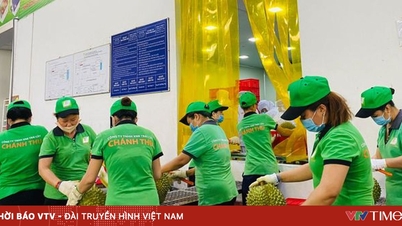

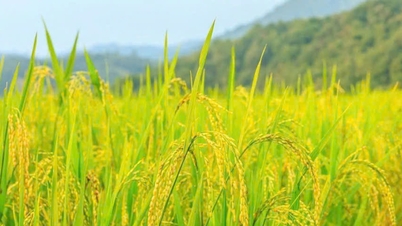






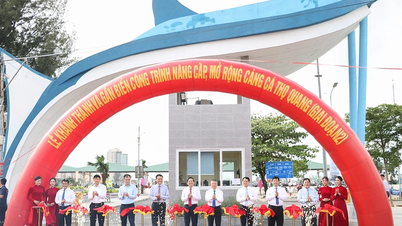





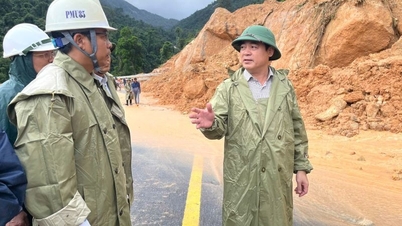







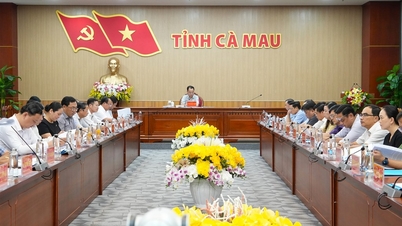

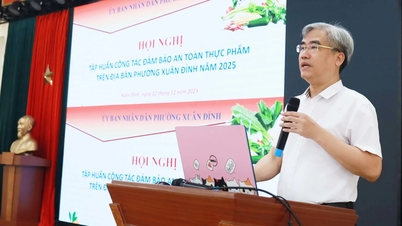



![[Photo] Parade to celebrate the 50th anniversary of Laos' National Day](/_next/image?url=https%3A%2F%2Fvphoto.vietnam.vn%2Fthumb%2F1200x675%2Fvietnam%2Fresource%2FIMAGE%2F2025%2F12%2F02%2F1764691918289_ndo_br_0-jpg.webp&w=3840&q=75)
![[Photo] Worshiping the Tuyet Son statue - a nearly 400-year-old treasure at Keo Pagoda](/_next/image?url=https%3A%2F%2Fvphoto.vietnam.vn%2Fthumb%2F1200x675%2Fvietnam%2Fresource%2FIMAGE%2F2025%2F12%2F02%2F1764679323086_ndo_br_tempimageomw0hi-4884-jpg.webp&w=3840&q=75)






















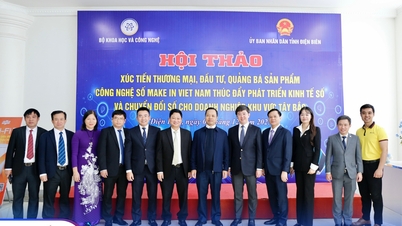
























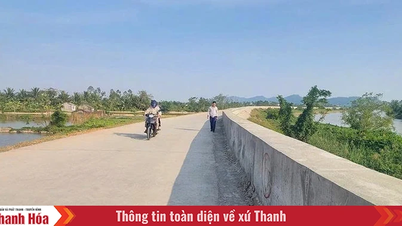














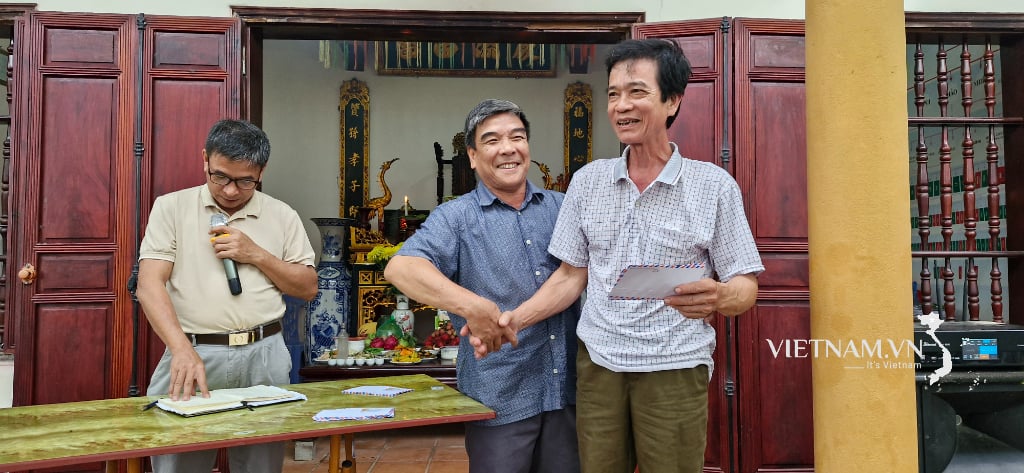


Comment (0)